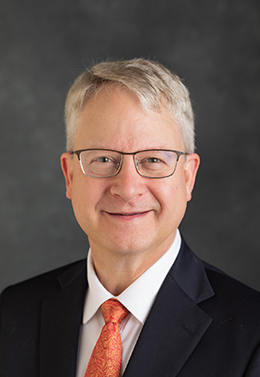Department Head and Robert M. Condra Professor
Biography
Chris Cox has been a faculty member at UT since 1991, teaching and conducting research in the area of Environmental Engineering. He previously served as the Director of the UT’s Institute for a Secure and Sustainable Environment (2011-2015) and as Associate Department Head (2008-2015).
He is an adjunct professor in the Department of Chemical and Biomolecular Engineering. Cox is a registered professional engineer in the State of Tennessee.
Research
Cox’s research has focused on computational approaches to understanding biological and natural and engineered environmental systems. Among the systems he has investigated include adsorption of metals and inorganic compounds on mineral surfaces, remediation of PAH contaminated soils, electrokinetic remediation of mercury contaminated soils, process variability and uncertainty in activated sludge treatment plants, microbial gene expression profiles during biofuel production from cellulosic feedstocks, community structure in anaerobic digestion, and variability in gene expression profiles as a tool for understanding transcription and translation processes at the cellular level.
Areas of interest include:
- Bioenergy Production
- Mathematical Modeling of Metabolic and Genetic Regulatory Systems
- Modeling of Engineered Pollution Control and Remediation Systems
Education
PhD The Pennsylvania State University in Environmental Engineering, 1992
MS The University of Missouri, Columbia in Environmental Engineering, 1984
BS The University of Missouri, Columbia in Chemical Engineering, 1983
Professional Service
Chi Epsilon Faculty Advisor
Chair Department Curriculum Committee
Chair Department Assessment Committee
Awards and Recognitions
Cox has been the recipient of numerous awards during his tenure at UT, including the Allen and Hoshall Faculty Award, the College of Engineering Research Fellow Award, the Chancellor’s Teaching Award, and the College of Engineering Outstanding Advising Award.
Publications
JL Linville, M Rodriguez, SD Brown, JR Mielenz, CD Cox, “Transcriptomic analysis of Clostridium thermocellum Populus hydrolysate-tolerant mutant strain shows increased cellular efficiency in response to Populus hydrolysate compared to the wild type strain,” BMC Microbiology, 14, 215, 2014.
JL Linville, M Rodriguez, JR Mielenz, CD Cox, “Kinetic modeling of batch fermentation for Populus hydrolysate tolerant mutant and wild type strains of Clostridium thermocellum,” Bioresource Technology, 147, 605-613, 2013.
JL Linville, M Rodriguez, M Land, MH Syed, NL Engle, TJ Tschaplinski, JR Mielenz, CD Cox, “Industrial Robustness: Understanding the Mechanism of Tolerance for the Populus Hydrolysate-Tolerant Mutant Strain of Clostridium thermocellum, ” PLOS ONE, 8(10), UNSP e78829, 2013.
RD Dar, BS Razooky, A Singh, TV Trimeloni, JM McCollum, CD Cox, ML Simpson, LS Weinberger, “Transcriptional burst frequency and burst size are equally modulated across the human genome,” Proc. National Acad. Sci. USA, 109 (43), 17454-17459, 2012.
PA Dobbs, CD Cox, JS Tyner, JR Buchanan, “Using risk analysis to predict design flow exceedance of decentralized wastewater management systems,” Water Environment Research 82:12 2357-2361, 2010.
CD Cox, JM McCollum, MS Allen, RD Dar, and ML Simpson, “Using Noise to Probe and Characterize Gene Circuits,” Proc. National Acad. Sci. USA, 105(31), 10809-10814, 2008.
DW Austin, MS Allen, JM McCollum, RD Dar, J R Wilgus, GS Sayler, NF Samatova, CD Cox, and ML Simpson, “Gene Network Shaping of Inherent Noise Spectra,” Nature 439 (7076), 2006.
